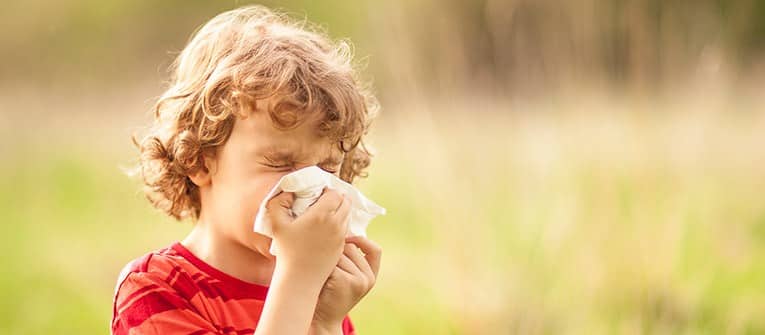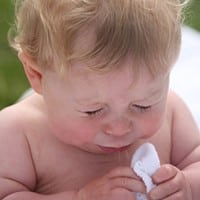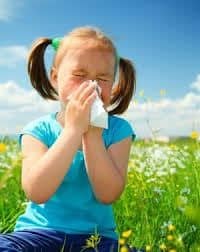While Hayfever is uncommon in children under five, it can become a problem for some in the summer months. Your child is more likely to suffer from hay fever if other close family members are affected. It’s not just flower pollen that can make your child feel unwell and there are definite seasons so you may discover that your child is affected during a certain time of Summer which can help you identify which pollen is causing the problem.
Pollen Seasons:
Tree pollen: between late March and mid-May
Grass pollen: between mid-May and July
Weed pollen: between end of June and September
Symptoms occur during the pollen season which is normally between March and September. They tend to be worse on days that are warm and sunny and are most severe first thing in the morning and in early evening. Hay fever is different from a common cold as there is no fever and it can last for several weeks.
Symptoms:
- Sneezing – especially when outside
- Red runny nose with clear mucus
- Rubbing their eyes which are red, puffy and watery
Prevention:
- Take note of the pollen count (metoffice.gov.uk) and keep your little one inside if it is high or if it is particularly windy.
- Invest in a pair of wrap-around sunglasses to stop pollen entering your toddler’s eyes.
- Keep the car windows shut when driving.
- Smear petroleum jelly around the inside of your child’s nose to trap pollen and stop it being inhaled.
- Wash hair, face and hands when they come back indoors and change clothes and take shoes off when you come inside.
- Avoid drying clothes outside as the pollen can cling to them.
- Pets can also bring in pollen on their fur, so it is best to wipe them down with a damp towel when they come in from outside and bathe them regularly too.
- Vacuum regularly and dust with a damp cloth.
- Use an air-conditioner in the home rather than opening the windows.
Treatment:
- Wipe eyes with cotton wool and cool water to soothe symptoms.
- Consult a pharmacist who will be able to advise you about any over-the-counter medicines which might help
- Nasal saline drops or a spray can be used to rinse pollen from the nostrils and to clear a blocked nose.
- Steroid nasal spray and sodium cromoglycate eye drops can be prescribed for children with severe symptoms from the age of six years.
For more information contact:







